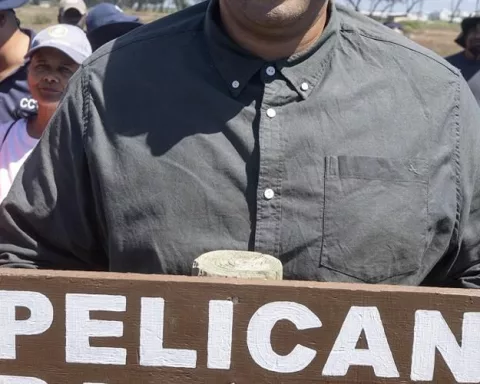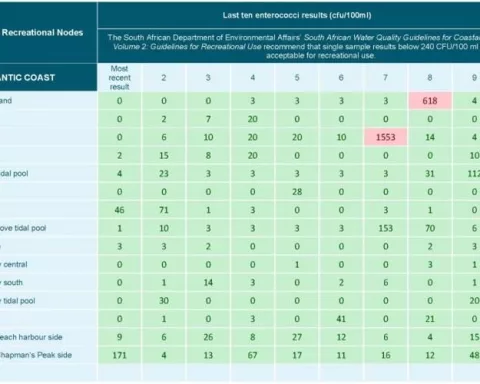Arbor Month, celebrated every September in South Africa, shines a spotlight on the vital role of trees and caring for our environment. This year, the Eastern Cape hosted a special event at the Fort Cox Agriculture and Forestry Training Institute, where Deputy Minister Bernice Swarts emphasized how trees help fight climate change and support our communities. With a theme celebrating 30 years of freedom, the campaign included planting 3,000 trees and giving fruit trees to local families, encouraging everyone to join in greening our land. The event reminded us that taking care of our forests is a shared responsibility, essential for a healthy future.
What is Arbor Month and its significance in South Africa?
Arbor Month, celebrated annually in September, emphasizes the importance of trees and environmental conservation in South Africa. It promotes sustainable forest management, community engagement, and education about the role of forests in combating climate change and supporting biodiversity, fostering a commitment to environmental stewardship.
A Significant Event in the Eastern Cape
In the vibrant Eastern Cape Province, the Amathole District Municipality exemplifies South Africa’s rich natural heritage. On September 30, 2024, a noteworthy event took place at the Fort Cox Agriculture and Forestry Training Institute. This venue hosted a closing ceremony for the 2024 Arbor Month campaign, graced by Deputy Minister of Forestry, Fisheries and the Environment, Ms. Bernice Swarts. Her keynote address highlighted the essential role of forestry in environmental conservation and sustainable management.
The backdrop of this ceremony is steeped in the pressing realities of climate change. Recent snowfalls across the Eastern Cape, Free State, and KwaZulu-Natal provinces starkly showcased the region’s susceptibility to such extreme weather events. The resultant damage to homes, businesses, and infrastructure served as a stark reminder of the disproportionate impact of climate change on the Global South. Although these regions contribute the least to historical emissions, they bear the brunt of climate change’s effects. Deputy Minister Swarts underscored the urgency of adopting adaptive and mitigative strategies, stressing the need for accelerated decarbonization and a just energy transition. “Our economy’s carbon intensity is unsustainable,” she warned, calling for immediate action.
Arbor Month Campaign: A Tribute to 30 Years of Freedom
The Arbor Month campaign commenced on September 8 at Freedom Park in the City of Tshwane, embracing the theme, “Celebrating 30 Years of Freedom: Promoting Environmental Conservation and Sustainable Forest Management.” This theme resonates deeply with South Africa’s democratic journey, emphasizing the importance of forests in nurturing heritage, prosperity, and resilience within communities. The Fort Cox Agriculture and Forestry Training Institute, with its rich legacy in forestry and agriculture, provided an ideal setting for the event. Renowned for producing industry trailblazers, the institute represents the intersection of education and environmental stewardship.
Deputy Minister Swarts praised the institute for its significant contribution to the forestry sector. As one of only five institutions in South Africa offering forestry curricula, it plays a crucial role in nurturing future entrepreneurs and industry leaders. She reaffirmed the Department’s commitment to supporting high-quality education, highlighting the importance of well-trained graduates in strengthening the economy.
A standout feature of the campaign was the planting of 3,000 trees in local communities surrounding the institute. On the day of the event, three symbolic trees were planted to represent freedom, heritage, and democracy. Additionally, 100 trees were donated to the Traditional Authority in BurnsHill for community distribution. The Deputy Minister, along with the Mayor of Raymond Mhlaba Local Municipality, distributed 100 fruit trees to the Ngxondorheni community. This generous act supported the Ten Million Trees Programme, initiated by President Cyril Ramaphosa. This ambitious initiative calls for extensive collaboration among greening partners and stakeholders to achieve its goals.
The Role of Tree Planting and Forest Management
Tree planting was a central focus of the Arbor Month campaign, emphasizing the critical role of forests in ensuring food security. The increasing momentum of tree planting in rural communities is a positive trend, reflecting a growing public engagement. Now in its fourth year, the Ten Million Trees Programme continues to encourage widespread participation. The Department has introduced various initiatives, including an online platform for the public to register tree planting activities, the establishment of the National Greening Forum to coordinate greening efforts, and the revamped National Arbor City Awards competition to incentivize municipal participation.
However, the beauty and utility of forests come with significant responsibilities. Uncontrolled veld and forest fires pose severe threats to natural vegetation, property, and lives. The dry transition season exacerbates the risk of such fires, necessitating heightened vigilance. The National Veld and Forest Fires Act of 1998 empowers the Department to prevent and combat these fires. Recognizing high-risk areas, particularly those with extensive woodlands, the Department has registered 217 Fire Protection Associations (FPAs). Aligning these associations with municipal boundaries aims to optimize resource use and inclusivity, especially for previously disadvantaged communities. The Working on Fire Programme provides financial support to FPAs, and district municipalities will receive vehicles to aid in fire management.
Economic Contributions of the Forestry Sector
Forests play a pivotal role in the economy, and the Forestry Sector Masterplan reflects a collaborative effort by the government, industry, and labor to drive growth, transformation, and investment. In its fourth year, the Masterplan has already set impressive targets. A key deliverable, the New Afforestation Programme, aims to establish new plantations on virgin land. This process requires licenses under the National Water Act, the National Environmental Management Act, and the Conservation of Agricultural Resources Act. The Department supports communities by funding Environmental Impact Assessment studies to streamline the afforestation licensing process. Currently, 44,000 hectares await licensing, with Environmental Assessment Practitioners soon to be appointed.
The Masterplan initially set investment targets ranging from R16.5 billion to R30 billion by 2025/26. Remarkably, the private sector has already surpassed these targets, with investments reaching R33.2 billion. Ensuring the productivity of Department-managed plantations remains a top priority. Over 6,213 hectares have been transferred to communities through the Community Forestry Agreement Model, fostering engagement and support for these communities to thrive within the sector.
A Collective Commitment to Environmental Stewardship
The closing event of the 2024 Arbor Month campaign was more than a ceremonial occasion; it was a reaffirmation of collective dedication to environmental stewardship. Deputy Minister Swarts extended her gratitude to the stakeholders, including the Fort Cox Agriculture and Forestry Training Institute, Amathole District Municipality, and its local municipalities, Raymond Mhlaba and Amahlathi. She also acknowledged the continuous support of corporate sponsors like TotalEnergies for their contributions to the Arbor Month Campaign, National Greening Programme, and the Arbor City Awards competition.
The event underscored that environmental conservation requires a united effort across all sectors of society. The initiatives and collaborations highlighted during the Arbor Month campaign illustrate a pathway forward—one where sustainability, community resilience, and economic development are intertwined through the stewardship of South Africa’s forests. The collective efforts of various stakeholders ensure that South Africa’s natural heritage is preserved for future generations, fostering a sustainable and resilient environment.
FAQ: Celebrating Arbor Month in South Africa
What is Arbor Month and its significance in South Africa?
Arbor Month, celebrated annually in September, emphasizes the importance of trees and environmental conservation in South Africa. It promotes sustainable forest management, community engagement, and education about the role of forests in combating climate change and supporting biodiversity, fostering a commitment to environmental stewardship.
What events took place during the 2024 Arbor Month campaign?
A significant event was held on September 30, 2024, at the Fort Cox Agriculture and Forestry Training Institute in the Eastern Cape. Deputy Minister Bernice Swarts highlighted the essential role of forestry in environmental conservation and sustainable management. The campaign featured the planting of 3,000 trees and the distribution of fruit trees to local families, promoting community involvement in greening efforts.
What was the theme for the 2024 Arbor Month campaign?
The 2024 Arbor Month campaign embraced the theme, “Celebrating 30 Years of Freedom: Promoting Environmental Conservation and Sustainable Forest Management.” This theme reflects South Africa’s journey towards democracy and highlights the importance of forests in fostering heritage, prosperity, and resilience within communities.
How does tree planting contribute to food security and climate change efforts?
Tree planting plays a critical role in ensuring food security by providing resources and combating climate change. The Ten Million Trees Programme encourages widespread participation in tree planting initiatives, which are vital for enhancing environmental health and community resilience in the face of climate challenges.
What measures are in place to combat forest fires in South Africa?
The National Veld and Forest Fires Act of 1998 empowers the Department to prevent and combat veld and forest fires, which pose serious threats to natural vegetation and lives. The Department has registered 217 Fire Protection Associations (FPAs) to optimize resource use in high-risk areas and supports these associations through the Working on Fire Programme.
How does the forestry sector contribute to South Africa’s economy?
The forestry sector is crucial for economic growth, with the Forestry Sector Masterplan facilitating collaboration between the government, industry, and labor. The plan aims for significant investment and includes initiatives like the New Afforestation Programme, which promotes the establishment of new plantations, ultimately benefiting local communities and enhancing economic resilience.












